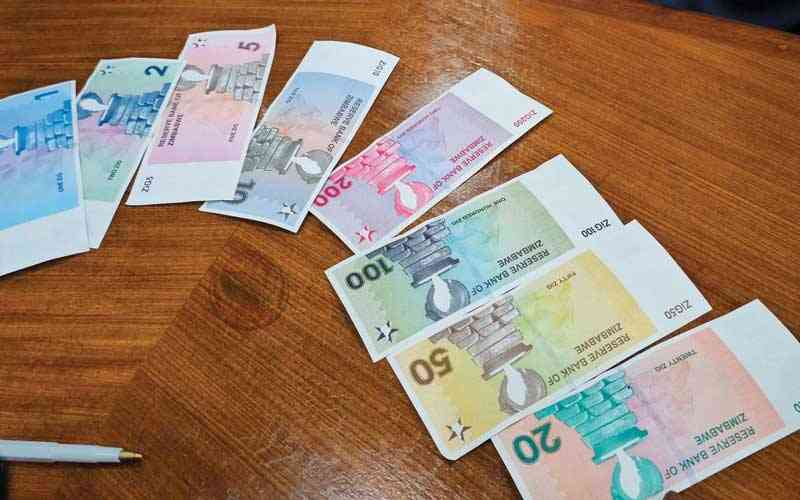
THERE were two early victims of the recent attack by Somali pirates on the cruise ship MSC Melody, sailing between Durban, South Africa and Genoa, Italy.
One was the truth; the second possibly all future possibilities of a three-week leisurely journey to Europe, via picture postcard Indian Ocean islands, taking in the wonders of the Holy Land, negotiating the breathtakingly-constructed Suez Canal and then travelling slowly virtually the whole “leg” of the boot of Italy.
MSC – Genoa-based Mediterranean Shipping Company which operates under Panamanian flags-of-convenience–instantly announced it would scrap the African east coast route when moving ships from and to southern/northern hemisphere summer operations.
Despite the abortive and aborted armed pirate raid, some passengers booked a November cruise south from Genoa to Durban, something I planned to do myself possibly in 2011.
The voyage would have been on the MSC Sinfonia, replacing the Melody (re-deployed to European waters, then Brazil) and MSC’s Rhapsody (pensioned off and sold to a Greek shipping line.)
The pirate-infested route abandoned is: Genoa — Naples — (possibly Sicily) — Suez — El Sokhna (excursions to the Pyramids, The Sphinx, Cairo Museum etc)-Safaga (trips to Luxor and the Valley of the Kings etc)-Aqaba with outings to Petra, Wadi Rhum, etc) — Seychelles-Mauritius-Reunion-Durban.
Sinfonia will ply the west coast route: Durban to Cape Town, a port in Namibia, Senegal, Morocco, Straits of Gibraltar and maybe the odd historic harbour in the western Mediterranean before turnaround at Genoa.A not-to-be-sniffed at journey (and holiday) of a lifetime for many, but I never thought West Africa had the allure of the east coast route taking in three continents.
I am sure food quality, quantity, presentation and service will be at least as equally good on the Sinfonia as it was on the 26-year-old veteran vessel Melody: character-filled and filled with characters.
- Chamisa under fire over US$120K donation
- Mavhunga puts DeMbare into Chibuku quarterfinals
- Pension funds bet on Cabora Bassa oilfields
- Councils defy govt fire tender directive
Keep Reading
The well-considered wine list will no doubt be as extensive and drinks will be as relatively inexpensive as on my recent sailing. (On the 4 700-passenger Independence of the Seas, then the biggest cruise liner in the world, in the Western Caribbean in January booze was between 100% and 200% dearer than on the Melody.. and then carried a compulsory 15% surcharge for “gratuities”.
Dopping, on the Independence, was a seriously dear business. I rarely drink “hard tack” but buying it or wine cheap and duty-free, smuggling it aboard was impossible. And if you bought in the ship’s mouth-watering duty-free section, they’d only release liquor on disembarkation.
On the Melody, possibly due to consumer resistance, lager and cider brands dropped in price rapidly from US$2,20 to $2,70 to a par $1,50. A carafe of good Italian or South African wine cost $4 ($8-US$11 a bottle); proprietary Scotch was $3,50 a generous tot; g&t $3,80.
Be careful with “duty-free” nowadays. A camera I fancied on the Independence was US$310 but could be bought in any UK High Street recession-hit photo-store, on-line or at Argos for around £117,50 much cheaper.
Sadly the other victim of the raid was candour, honesty, openness and the truth.
It was patently clear neither officers, ship’s company, armed young Israeli security agents or all but the most “Nervous Nellies” among nearly 1 000 passengers expected an armed attack less than nine hours (perhaps 250km) north of Seychelles where, ironically, many travellers had spent convivial time that day in The Pirates’ Arms, a pub/restaurant in the main street of the 150-island archipelago’s dinky capital, Port Victoria.
It was by far the raiders’ most southerly and easterly target and it could probably be forgiven that most senior officer were socialising (one of their duties) in various bars, or enjoying final cultural crescendo of a classical operatic recital under balmy tropical stars next to a swimming pool.
Fortunately a few passengers were still having a last stroll on the aft deck, coffee, nightcap or final cigarette in one of the few areas where smoking was allowed.
Luckily one of those —a 60-year-old woman from North Wales – spotted the raiders low-profile speed boat and managed to finally raise the alarm: many crew members dismissing her warning as mistaken, alarmist or a poor joke.
Had that lady been hearing the final overture, or standing at starboard, rather than port, railing or if pirates had struck even half an hour later, it could have been a tragically different ending.
Sadly, master of the vessel, Captain Ciro Pinto, instead of acknowledging the aid passengers gave in seeing the danger, raising the alarm and repelling boarders with pelted deckchairs, tables, sun-beds and ashtrays pooh-poohed the impact of this quick thinking and decisive action.
It was an attitude which outraged many passengers at an unruly briefing he tried to give, through interpreters, in four languages 35 hours after the event.
When he went on to laud the alleged “planning” which went into dealing with the outrage: steering evasively to dislodge the boat; Israelis returning pirates’ murderous AK-47 fire and using water hoses to dislodge them from rope ladders with grappling irons, his apparent boastfulness caused a mass walkout.
Over an uneventful fortnight later and three days after the journey’s end (I’m now in Aberdeen in the north of Scotland), there were no further details, no apologies, no explanations, no offers of compensation for the disruption and shortening of excursions or for the “trauma” some passengers claimed.
As far as I am aware no attempt was made to contact next of kin, indeed the exact opposite applied: the ship-to-shore radio was shut for many hours, personal satellite phone transmissions blocked and a painfully slow, hideously dear (US$30 an hour) Internet service constipated for days.
Again, to the best of my knowledge, only one embassy contacted its nationals on board – and these included a few Americans and many French folk, whom pirates had threatened with death if captured.
Some 79 Australian passengers and crew were assured in writing Canberra’s diplomats in Rome were standing-by at journey’s end to provide any help needed.
Needless to say, the one Zimbabwean on board heard nothing from anyone!
BY DUSTY MILLER











